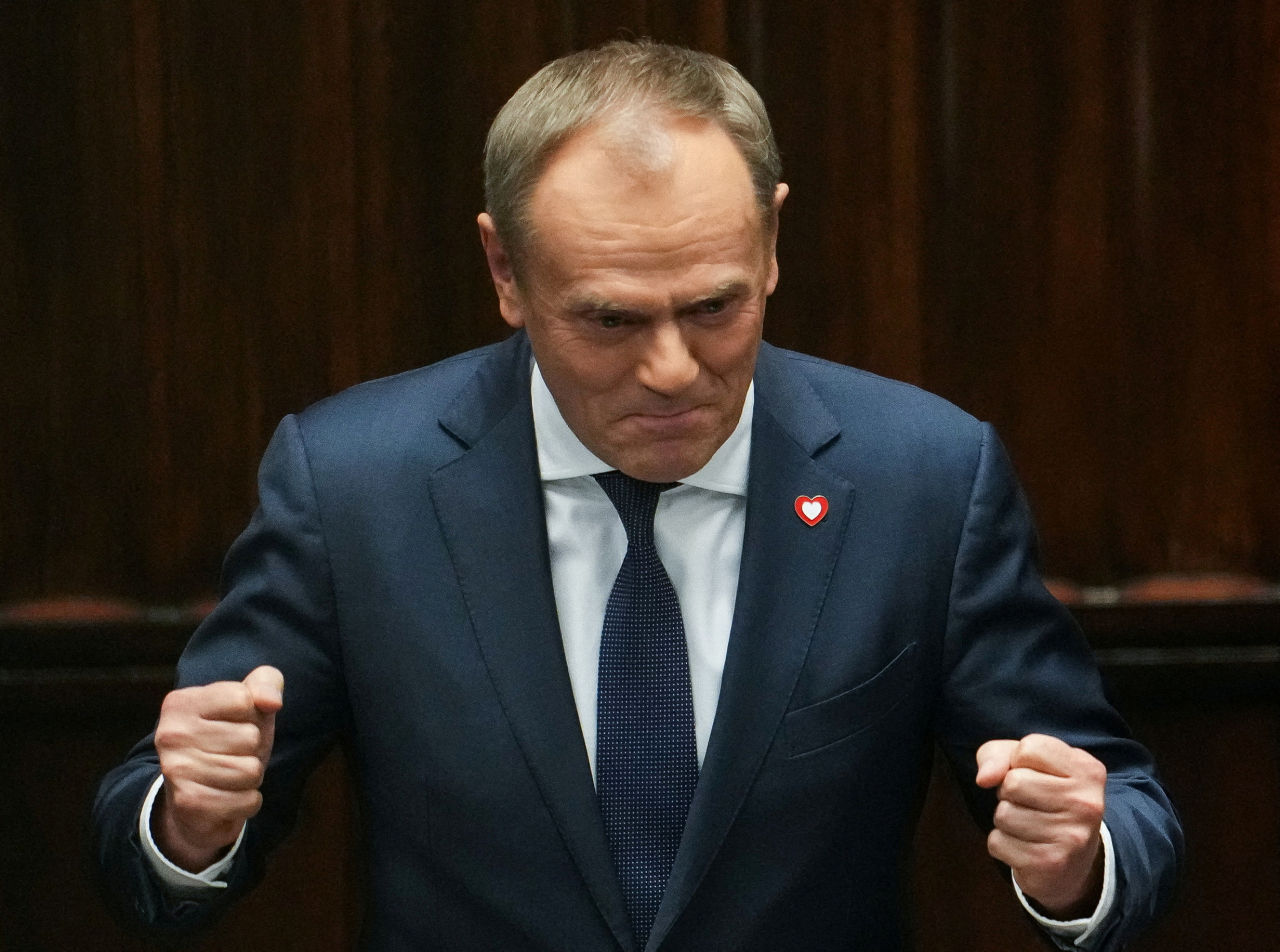 |
Leader of the Civic Coalition Donald Tusk gestures after the Parliament voted in favor of him becoming the Prime Minister, in Parliament, in Warsaw, Poland, on Monday. (Yonhap-Reuters) |
The shift in power in Poland is stoking worries in South Korea over its possible toll on an arms export deal to the European country reached last year.
Donald Tusk, a former European Union leader, was chosen as Poland’s prime minister for a second time in a parliamentary vote Monday, ending eight years of the nationalist conservative administration’s rule.
With the change of the administration, the Polish Parliament’s Speaker Szymon Holwnia has said that agreements signed by the outgoing government may be canceled -- which could include the $5.8-billion contract South Korean companies signed for the export of tanks, howitzers and other weapons to Poland.
After the incoming administration in Poland suggested the invalidation of earlier deals, the South Korean arms acquisition agency said Tuesday that, together with other concerned ministries, it was “closely monitoring” the evolving situation and the possible impact on the industry here.
Choi Kyung-ho, the spokesperson for the South Korean government’s Defense Acquisition Program Administration, told The Korea Herald that he believes pulling out of the deal would be a “difficult decision” for Poland.
“Considering the international climate in Europe, more specifically the war in Ukraine, I don’t think Poland would decide to drop the contract, despite the shift of government in Warsaw,” he said, adding that so far no changes were announced, with the deal being followed up by both sides.
Another official at the arms acquisition agency explained that there was not much the government could do at this point. “We’ll have to wait and see. What happens from now on is up to Poland to decide,” he told The Korea Herald.
He said that the government’s role in the deal was largely financial support, such as helping companies secure loans at major banks.
Rep. Han Ki-ho, the army commander-turned-lawmaker who is now chairing the National Assembly’s National Defense Committee, said that under circumstances different from the ones surrounding the deal with Poland, South Korea was experiencing delays in a joint project with Indonesia.
Indonesia has missed deadlines for paying its share of the project launched in 2015 for co-developing KF-21 fighters, leaving South Korea with no options other than to ask for a commitment to follow through, he told The Korea Herald.
“Indonesia didn’t scrap the deal, but its internal political and other conditions prevented them from keeping up with the terms. There is not much we can do about it,” he said.
Yang Uk, a defense researcher at the Asan Institute of Policy Studies, said that although under Tusk’s pro-EU government Poland may move to obtain some of the needed weapons from other European countries, he didn’t think canceling the deal altogether would be plausible.
For one thing, South Korea is an “optimal provider” of weapons required by Poland, having the ability to deliver the supplies quickly at a relatively competitive price compared to other major exporters of arms, he said in a phone call with The Korea Herald.
“We’ve already completed the first installment of the contract with Poland, but the remaining installment is much larger in scale,” he said.







![[Today’s K-pop] Blackpink’s Jennie, Lisa invited to Coachella as solo acts](http://res.heraldm.com/phpwas/restmb_idxmake.php?idx=644&simg=/content/image/2024/11/21/20241121050099_0.jpg)